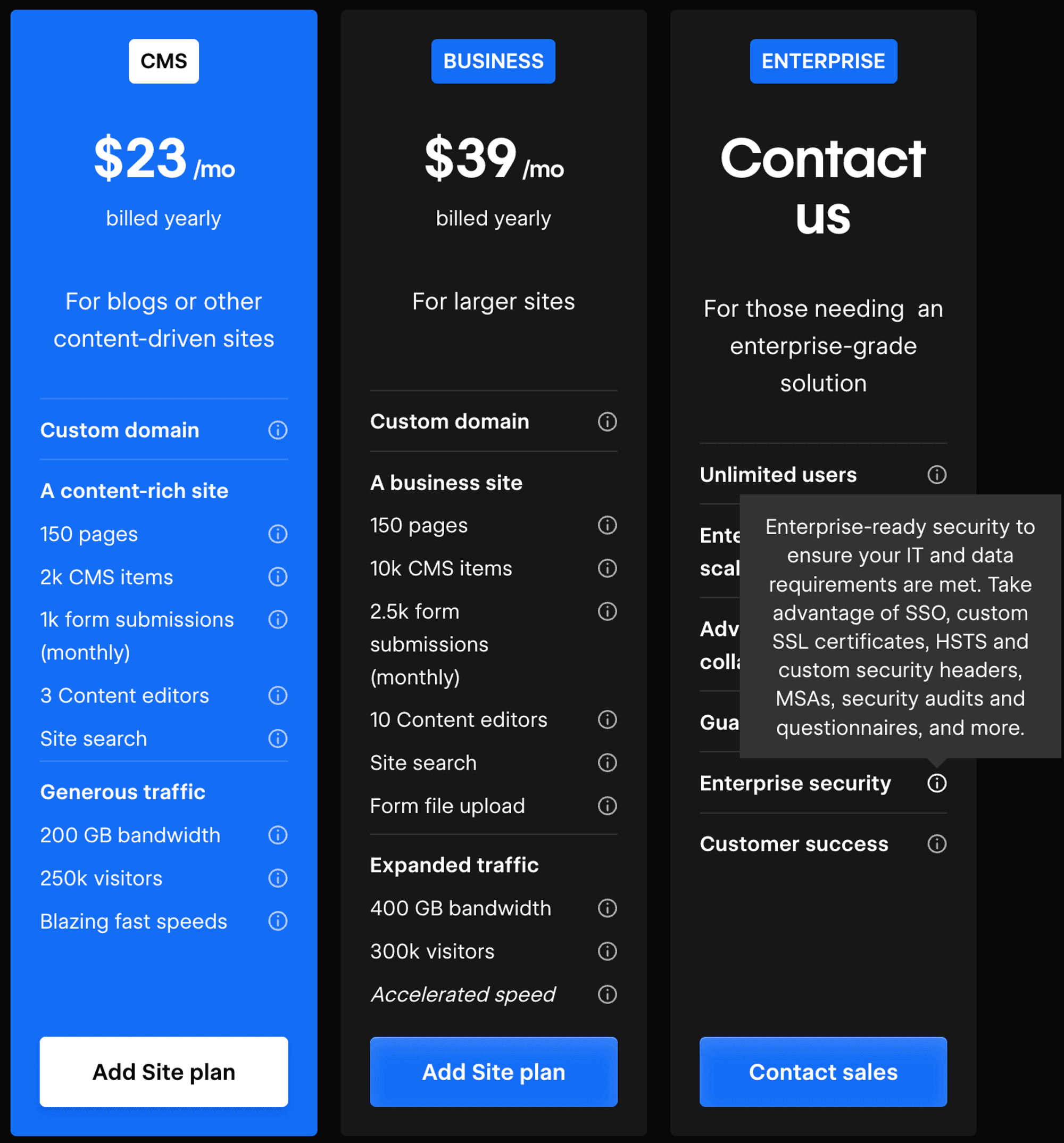How small companies get taxed out of security and why the whole industry suffers
Let’s say you’re working at a small startup: You’re the CTO, your CEO is a good friend, and you have a couple of developers working with you from a previous company. You’re building your initial tech stack, and you start – where else? – with GitHub.
The pricing is simple enough. There’s a pretty feature-rich free plan, but you’re willing to pay up because the Team plan includes features for restricting access to particular branches and protecting secrets.
But the enterprise plan, the plan that costs more than four times as much per user per month – the plan that seems targeted at, well, enterprises – promises “Security, compliance, and flexible deployment.”
Is security… not for startups?
The feature comparison bears this out: Only the enterprise plan offers single-sign-on (SSO) functionality as part of the package – a feature that security experts have long agreed is essential. But don’t get mad at GitHub.
Do you want Box? You’ll have to pay twice as much for external two-factor authentication.
Do you want Mailtrap? The team, premium, and business plans won’t do. Only the enterprise plan, which costs more than $300 per month more than the team plan, offers SSO.
Do you want Hubspot’s marketing product, but with SSO? Prepare to pay $2,800 more per month than the next cheapest plan.
And these are only a few examples. SSO.tax, a website started by Rob Chahin, gathers many more. If you look through, you’ll see companies like SurveyMonkey and Webflow even restrict SSO to enterprise plans with a Contact Us option instead of a price.

